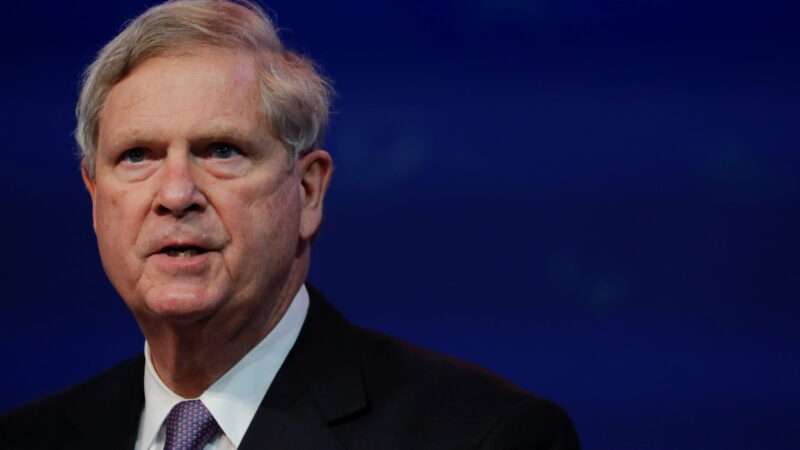Yesterday, federal prosecutors announced a prosecution of Xinjiang Jin for “allegedly participat[ing] in a scheme to disrupt a series of [Zoom] meetings in May and June 2020 held to commemorate the June 4, 1989 Tiananmen Square massacre in the PRC.” The meetings “were organized and hosted by U.S-based individuals.”
Jin worked for Zoom in China, dealing with Zoom’s compliance with Chinese law as to Zoom’s activity in China (much of which is lawful under U.S. law). But, according to the criminal complaint, he worked with various people associated with the Chinese government to stop various U.S.-based meetings, and to surveil participants in the meetings, including by fraudulent means: The coconspirators allegedly used false names to “infiltrat[e] the meetings to gather evidence about purported misconduct occurring in those meetings,” and
created fake … accounts in the names of others, including PRC political dissidents, to fabricate evidence that the hosts of and participants in the meetings to commemorate the Tiananmen Square massacre were supporting terrorist organizations, inciting violence or distributing child pornography. The fabricated evidence falsely asserted that the meetings included discussions of child abuse or exploitation, terrorism, racism or incitements to violence, and sometimes included screenshots of the purported participants’ user profiles featuring, for example, a masked person holding a flag resembling that of the Islamic State terrorist group.
Jin used the complaints as evidence to persuade [Zoom] executives based in the United States to terminate meetings and suspend or terminate the user accounts of the meeting hosts.
Also,
[People’s Republic of China] authorities took advantage of information provided by Jin to retaliate against and intimidate participants residing in the PRC, or PRC-based family members of meeting participants. PRC authorities temporarily detained at least one person who planned to speak during a commemoration meeting. In another case, PRC authorities visited family members of a participant in the meetings and directed them to tell the participant to cease speaking out against the PRC government and rather to support socialism and the [Chinese Communist Party].
Now this is obviously bad behavior, but here’s what struck me as odd:
- Jin (who is a Chinese citizen living in China, and who I assume will therefore never actually stand trial in the U.S.) is not being prosecuted for fraud.
- He is not being prosecuted for some crime of wrongfully assisting a foreign government to suppress speech in the U.S. (which I think could be made a crime, but apparently hasn’t been).
- He is not being sued for libel for participating in a scheme to get other people’s events canceled through lies.
Instead, he’s being charged with conspiracy to commit cyberstalking, on the theory that his and his coconspirators’ actions, were taken “with the intent to harass and intimidate” and caused “substantial emotional distress” (18 USC § 2261A(2)(B)). (He’s also being charged with conspiracy to transfer another person’s means of identification, but with the intent to commit cyberstalking, so the “substantial emotional distress” claim is critical there, too.)
Here are the allegations that seem to most specifically tie the long factual discussion in the affidavit to the criminal charges:
50. [An] anti-CCP demonstrator who currently resides in Australia (the “Australian participant”) received a WeChat call from his/her father in the PRC in April 2020. During the call, an MPS [Ministry of Public Security] officer who was with the participant’s father stated, in sum and substance, that the participant needed to stop anti-CCP activities, provide the officer with the passwords to the participant’s social media accounts, and return to the PRC. The Australian participant refused and recorded the call. During the May 31, 2020 meeting on Company-1’s platform discussed above, the Australian participant discussed that call involving the MPS. On or about June 1, 2020, the Australian participant’s parents received an electronic message from the MPS, which message contained a screenshot showing the Australian participant in the May 31, 2020 meeting on Company-1’s platform. The Australian participant’s father then sent the participant an electronic message asking whether the participant wanted his/her parents “dead.” The Australian participant has stated, in sum and substance, that he/she was distressed by the pressure exerted by PRC officials on the participant and the participant’s family, particularly after the May 31, 2020 meeting on Company-1’s platform.
88…. [T]he termination of the June 4 Meeting has caused substantial emotional distress to participants in the meeting. For example, one of the speakers at the June 4 Meeting (“Speaker-1”) reported sending a message on or about June 3, 2020 via WeChat to his/her father’s WeChat account indicating that Speaker-1 was going to participate in an event about the Tiananmen Square massacre. After sending the message, Speaker-1 received a message on his/her WeChat account that Speaker-1’s account had violated the user agreement and was shut down. Additionally, approximately two weeks after the June 4 Meeting, the local MPS called the mobile telephone of Speaker-1’s father in the PRC. During the call, the MPS instructed Speaker-1’s father to tell Speaker-1 to stop speaking out against the CCP and to support socialism and the CCP. The MPS also inquired about Speaker-1’s life in the U.S. and asked when Speaker-1 intended to return to the PRC.
89. As discussed above, other PRC government actions related to the pro-democracy discussions on the Company-1 platform in May and June 2020 also caused significant emotional distress to other participants, including to the Australian participant.
As best I can tell, the only part of Jin’s broader speech-suppressive scheme that us actually the basis for the prosecution is his conspiracy with Chinese authorities to pressure people (one Australian and one American) to stop speaking out against the government, using those people’s families in China as leverage. (Note that there is a separate prong of § 2261A, subparagraph (2)(A), that prohibits threats of violence; but the government brought it under the substantial distress prong, (2)(B), presumably to avoid having to prove that actual threats of violence were involved.)
Perhaps that fits, even if in attenuated way, with the logic of § 2261A, on the theory that Jin helped “surveil[]” anti-Chinese events in a way that led to implicit threats of violence against Chinese relatives, and thus caused “substantial emotional distress” (and was done with the “intent to intimidate”). But that’s far removed from the fraudulently obtained cancellation of the Tiananmen Square commemorations.
To be sure, the first half of paragraph 88 starts out focused on the cancellation: “the termination of the June 4 Meeting has caused substantial emotional distress to participants in the meeting.” But I assume that it can’t be referring to the very fact of the cancellation: Unpleasant as it is to have one’s speech curtailed this way, I don’t think that it causes sufficiently “substantial emotional distress” to make the cancellation as such be a federal felony. (Imagine the Chinese government weren’t involved, and the cancellation just happened through public pressure, e.g., private people pressured some private company to cancel an event hosted on its physical property—even if that might be condemned as intolerant, surely it’s not a criminal violation of § 2261A.) Instead, the rest of the paragraph seems to tie the cancellation back to the coercive pressure on some of the participants, stemming from the Chinese government’s pressure on their families.
So however this prosecution might have been billed, I can’t see the government’s theory offering real legal protection against pressure on Zoom to cancel anti-Chinese-government events—or even against false allegations to Zoom that are aimed at canceling such events. (Note that Jin is apparently still in China, and is highly unlikely to be extradited here; so I expect that none of the claims are going to be really tested in this case.)
The prosecution might help signal that the U.S. government will try to go after people who conspire with the Chinese government to threaten people’s families as a means of suppressing anti-Chinese-government speech (a worthy cause, but even there I’m not positive that § 2261A is the proper vehicle for that). But any broader protection against “disrupting video meetings” expressing such views would require, I think, a different legal theory.
[* * *]
I should note that I’ve long argued that 18 U.S.C. § 2261A is unconstitutionally vague and overbroad, as applied to speech—I don’t think the government can just criminalize repeated speech that is intended to “harass” (with no clear definition of the term) and would reasonably be expected “to cause substantial emotional distress.”
That statute would literally cover the speech found to be constitutionally protected in cases such as Hustler Magazine v. Falwell and Snyder v. Phelps, as well as a wide range of other harsh criticism of people, so long as a prosecutor and jury concludes that the criticism was ill-intentioned. (A great deal of harsh and broadly distributed criticism is, after all, likely “to cause substantial emotional distress,” even if it consists of opinion or accurate factual allegations.) Several appellate decisions disagree with me on that (see, e.g., here), but the matter isn’t settled, I think; and a couple of district court decisions (see, e.g., here and here) have recognized the First Amendment problems of § 2261A, though in as-applied challenges.
But here I’m not saying that Jin’s actions were constitutionally protected—only that it’s not clear to me how far § 2261A can go to actually protect American speakers against foreign stratagems to restrict their speech (at least unless those stratagems involve threats against speakers’ families back in the foreign country).
from Latest – Reason.com https://ift.tt/2J4mXme
via IFTTT

